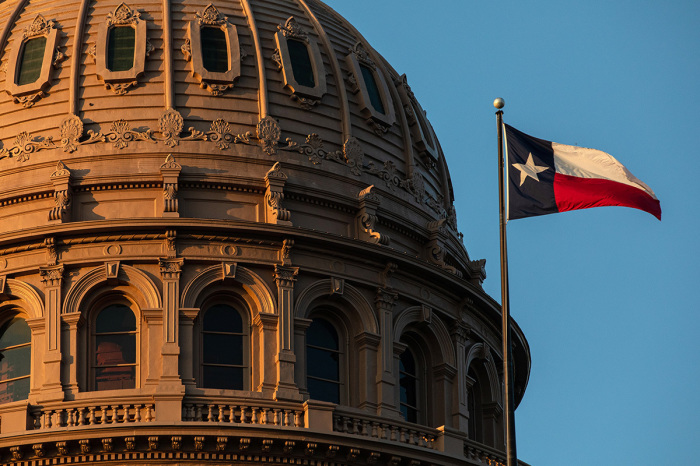Critic warns proposed bill could result in jail time for someone who ‘drew a cartoon’

Creating memes and other online speech — at least for political office holders and candidates — might soon become punishable by up to a year in jail in Texas under a proposed law.
The Texas House of Representatives passed a contentious bill Wednesday authored by former GOP Speaker Dade Phelan that critics warn could criminalize political memes and speech by requiring disclosures for altered media in political advertisements.
House Bill 366, approved by a vote of 102-40, aims to regulate the use of manipulated images, audio, or video in campaigns but has sparked fierce opposition from hardline conservatives who call it a threat to free expression. The bill now heads to the Senate, where its fate remains uncertain.
“This is the beginning of a new era in ethics where the voters need to know what is real and what is not,” Phelan, who represents Jefferson, Orange and Jasper counties, said during the floor debate. “This AI technology gets better every single day. It gets more inexpensive every single day; it’s going to become the norm.”
It is my goal to prevent someone from impacting or altering an election by using fake media that never occurred in reality, be it AI or deep fakes,” Phelan said.
If passed, HB 366 would apply to officeholders, candidates or political committees that spend over $100 on political advertising during a reporting period, excluding costs for basic hardware, messaging software, or bandwidth. It also covers those who publish, distribute, or broadcast altered media for compensation. The bill prohibits knowingly using images, audio or video of a candidate’s or officeholder’s appearance, speech, or conduct that “did not occur in reality,” including media altered by generative AI, unless a disclosure is included indicating the content is fake.
Violations would constitute a Class A misdemeanor, carrying penalties of up to one year in jail and/or a maximum fine of up to $4,000.
In a tense exchange with Rep. Shelley Luther, R-Plano, Phelan defended the criminal penalty, arguing that civil fines are ineffective and cited a figure of about $3.6 million in uncollected fines across 750 cases statewide.
“Fining someone $500 in a campaign that could be $5, $10 million, a $500 fine is a cost of doing business,” he said. “If someone were to commit an offense of this nature, it would certainly get their attention.”
The bill exempts superficial alterations, such as changes to saturation, brightness, contrast, or color, and shields entities like radio and TV broadcasters, cable or satellite operators, internet service providers, cloud or cybersecurity services, telecommunications networks, and commercial sign owners from liability.
Luther, a former hair stylist who was jailed for three days during the COVID-19 pandemic for defying lockdown orders, challenged the bill’s penalties. “Can you imagine someone going to jail for a year and they say, ‘What are you in here for?’ and they say, ‘I drew a cartoon’?” she asked. Luther pressed Phelan on the year-long jail term, to which he responded that the bill acts as “a deterrent to using fake or altered media to drastically change the outcome of an election.”
Rep. Andy Hopper, R-Decatur, called it a “retribution bill,” arguing, “We have an informed electorate, and we already have platforms where people can talk. It is not the role of government to sit there and be a nanny state police force to decide.” Hopper proposed an amendment to prevent legislators from using the law to their advantage, but the proposal failed.
A related Senate bill on deep fakes, sponsored by state Sens. Nathan Johnson, D-Dallas, and Lois Kolkhorst, R-Katy, passed unanimously in March but awaits a House Elections Committee hearing. Despite HB 366’s passage, it remains unclear whether it can secure enough support in the Senate to become law by its proposed effective date of Sept. 1.
















